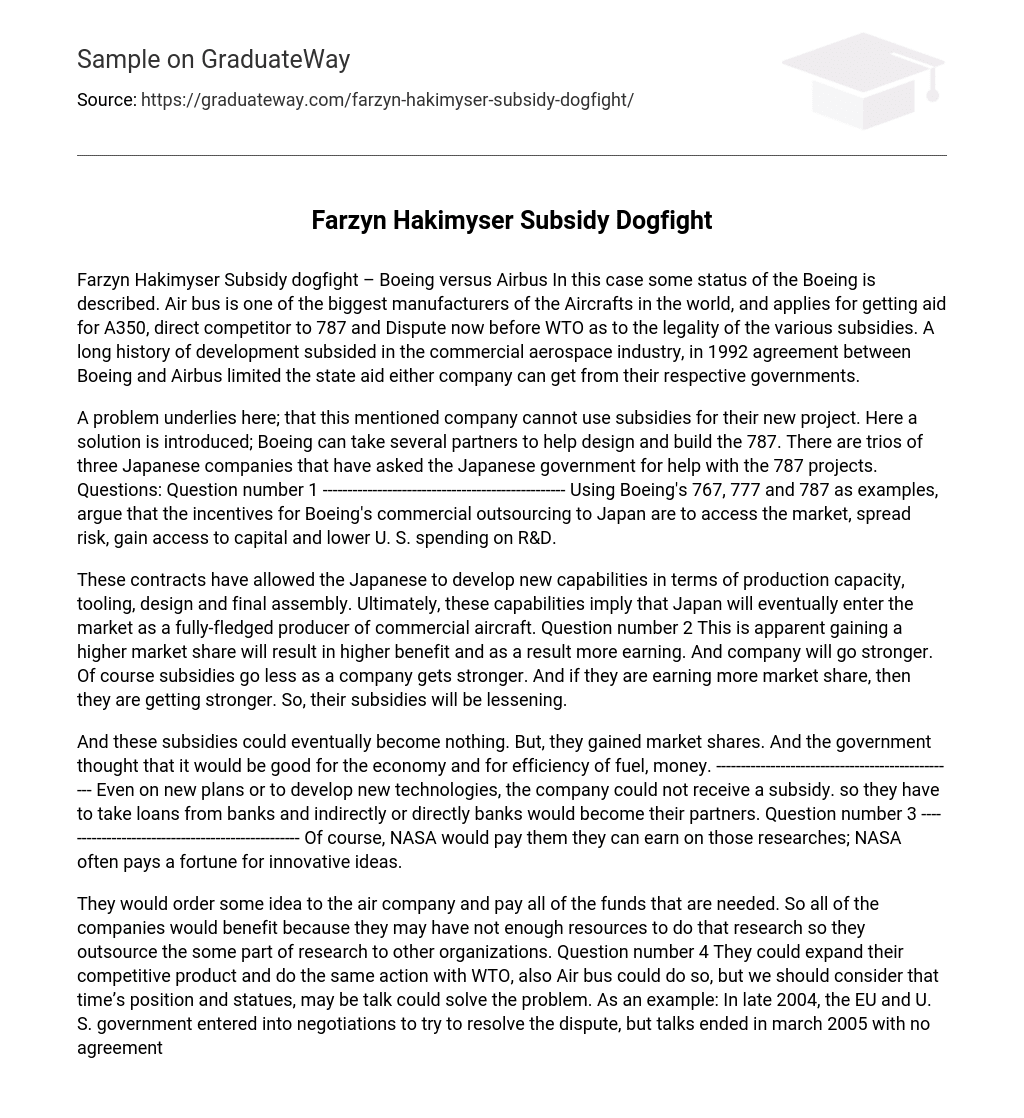In this case some status of the Boeing is described. Air bus is one of the biggest manufacturers of the Aircrafts in the world, and applies for getting aid for A350, direct competitor to 787 and Dispute now before WTO as to the legality of the various subsidies. A long history of development subsided in the commercial aerospace industry, in 1992 agreement between Boeing and Airbus limited the state aid either company can get from their respective governments.
A problem underlies here; that this mentioned company cannot use subsidies for their new project. Here a solution is introduced; Boeing can take several partners to help design and build the 787. There are trios of three Japanese companies that have asked the Japanese government for help with the 787 projects.
Questions 1: Question number Using Boeing’s 767, 777 and 787 as examples, argue that the incentives for Boeing’s commercial outsourcing to Japan are to access the market, spread risk, gain access to capital and lower U. S. spending on R&D. These contracts have allowed the Japanese to develop new capabilities in terms of production capacity, tooling, design and final assembly. Ultimately, these capabilities imply that Japan will eventually enter the market as a fully-fledged producer of commercial aircraft.
Question number 2 This is apparent gaining a higher market share will result in higher benefit and as a result more earning. And company will go stronger. Of course subsidies go less as a company gets stronger. And if they are earning more market share, then they are getting stronger. So, their subsidies will be lessening. And these subsidies could eventually become nothing. But, they gained market shares. And the government thought that it would be good for the economy and for efficiency of fuel, money. Even on new plans or to develop new technologies, the company could not receive a subsidy. so they have to take loans from banks and indirectly or directly banks would become their partners.
Question number 3 Of course, NASA would pay them they can earn on those researches; NASA often pays a fortune for innovative ideas. They would order some idea to the air company and pay all of the funds that are needed. So all of the companies would benefit because they may have not enough resources to do that research so they outsource the some part of research to other organizations.
Question number 4 They could expand their competitive product and do the same action with WTO, also Air bus could do so, but we should consider that time’s position and statues, may be talk could solve the problem. As an example: In late 2004, the EU and U. S. government entered into negotiations to try to resolve the dispute, but talks ended in march 2005 with no agreement. And EU countries give repayable loans to Airbus for ‘specific’ development programs, but not ‘all’ programs. In fact, only three of the last eight new aircraft models took advantage of that system. ( International Business, Charles W. L Hill).





